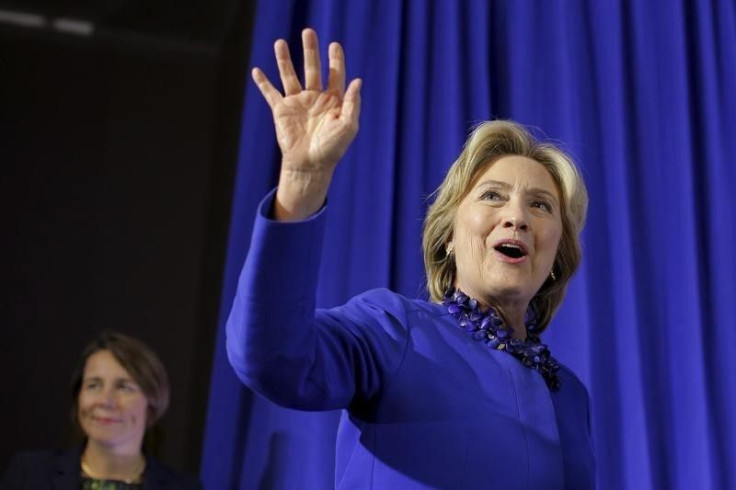Clinton Says To Boost City, State Funds For Addiction Treatment

BOSTON (Reuters) - Democratic White House front-runner Hillary Clinton laid out her $10 billion plan on Thursday to tackle drug and alcohol addiction in the United States by boosting spending on treatment for addicts.
The plan, unveiled early last month, focuses on treating addiction, including $7.5 billion to support state and city treatment programs, emphasizing treatment over prosecution for low-level drug offenses and equipping all first responders with the drug naloxone, which can reverse opioid overdoses.
"Those states, those cities that are stepping up are going to get the funds," under the plan, Clinton said in Boston on Thursday. "I hope that will serve as an example, because we’ve still got some denial going here."
Addictions affect some 23 million Americans, or about one in every 14 people, according to federal data.
"There’s treatment for one in 10, so when you do wake up that morning and you do decide that you want to go and get some help, you're lucky if you can find a place," Clinton said.
Clinton has said she seized on addiction as a key issue after hearing questions about it repeatedly while talking with voters on campaign stops.
The change in focus towards steering low-level addicts to treatment, rather than prison, is a welcome one, said Dr. Jeffrey Samet, a specialist in clinical addiction research at Boston University's School of Medicine.
"Nothing gets achieved by putting them into jail," Samet said. "Many of them, not all, but many, want to stop using as much as we want them to stop. Putting them in jail, most of them won't use while they are in, but once they're out, they start using again."
Abuse of opioid drugs is a particular problem in the northeastern United States, following a pattern where a patient is prescribed a painkiller, turns to illicit sources of that drug and later progresses on to heroin, which is cheaper and more widely available, experts said.
Boston Mayor Marty Walsh, a recovered alcoholic, said he hoped that the focus on addiction would lead more resources to be devoted to the problem.
"This would never have happened five years ago," Walsh said, speaking alongside Clinton in Boston. "Today this is a major focal point and will be a focal point in the presidential election."
New Jersey Governor Chris Christie, a Republican and former federal prosecutor, has also pointed to treatment as a smart way to tackle the problem.



























